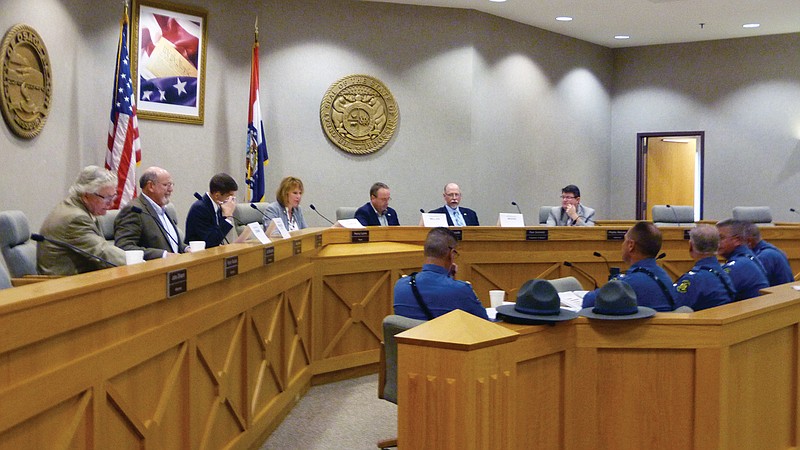OSAGE BEACH, Mo. - Missouri State Highway Patrol officials on Wednesday said all nine suggestions made by the Interim House Review Committee on the 2011 merger of the Patrol and the Water Patrol have been implemented.
The committee was formed following the death of a Des Moines, Iowa, man who drowned while in custody of a Highway Patrol trooper. The man, who had been arrested for boating while intoxicated, was handcuffed when he fell from a Patrol boat and drowned. The trooper in charge had placed a life jacket around the man's shoulder, but it came off when he fell into the water.
Although the committee did not question the ruling that the trooper was not responsible for the man's death, it did question the type and amount of training troopers were given before being assigned to on-water duty.
The Interim House Review Committee, chaired by state Rep. Diane Franklin, R-Camdenton, heard testimony Wednesday from Highway Patrol Col. Brent Johnson and other Highway Patrol officials who said all nine recommendations made by the committee had been implemented.
Among the recommendations was that former Missouri Water Patrol Capt. Matt Walz oversee the implementation of the committee's suggestions on officer training, the number of officers assigned to on-water duty and the Patrol's interaction with communities that surround the state's most popular waterways.
Beginning in May, Johnson said, Walz instituted a program where troopers are required to take 40 hours of "on-road" training followed by 40 hours of "on-water" training before they are assigned to work the state's waterways.
He said all the troopers who have been assigned to on-water duty since then have been given that training.
During the 40 hours of on-water training, the troopers learn how to handle a Patrol boat properly, spend several weeks training under the supervision of an experienced on-water officer, then spend several more weeks handling the actual duty with the experienced officer standing by.
Walz also has instituted a program that will require all on-water officers to pass a Red Cross swim course and take a refresher swim course on a yearly basis. Although that program won't take effect until next spring, Johnson said, all officers currently working on-water duty do know how to swim.
Johnson also said each of the Highway Patrol's nine troops have specially-trained marine officers who work the waterways within that troop's jurisdiction. He said in Troop F, which includes the Lake of the Ozarks, the number of specially-trained marine officers was increased this summer as suggested by Walz.
Johnson said the Patrol has also taken measures to improve the marine division's relationship with the communities they serve. He said troopers in those areas are making strides to become involved in local community events, work with schools and become more visible within the communities.
He said the Highway Patrol has enlarged and improved the quality of the logos on the Patrol's vessels to make them more visible to passing boaters. And, Johnson said his department is taking special measures to recruit new officers who are interested in working in the marine division.
"We currently have 76 positions within the marine division with 74 of those positions filled," he said. "But sooner or later, the experienced officers now in charge are going to retire, and we"ll need officers with on-water experience to take their places, and that's what we're working toward."
Johnson said the Highway Patrol also has adopted one of the rules used by the former Water Patrol Agency of having on-water officers work longer shifts during the summer months, then allowing them to take more time off during the winter.

